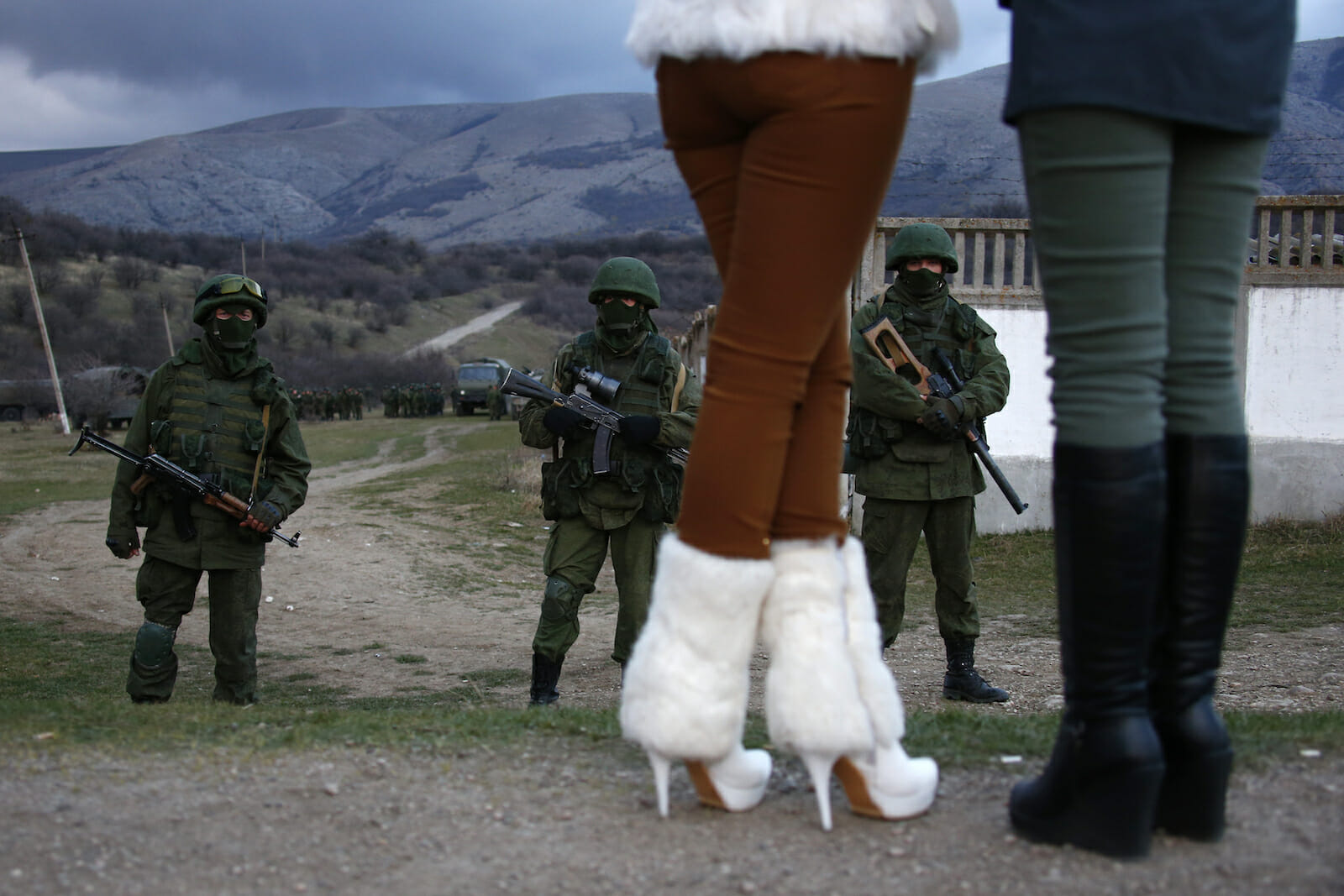
Putin: Afghanistan Redux
While Western officials have condemned Vladimir Putin for his invasion of Ukraine, they have cautioned the new government in Kyiv not to fall into the trap that Georgian President Mikhail Saakashvili did in 2008 and respond to Moscow’s provocation with force. Given the advantages that the Russian Army enjoys over its Ukrainian counterparts in terms of soldiers, aircraft, tanks, artillery and other instruments of war, any violent showdown with Russia would end badly for the Ukrainians. No objective military analyst would challenge that assessment. But it rests on the judgment that the war will be fought along conventional lines and if this is Putin’s assumption, he is badly mistaken.
Recent events in Kyiv have demonstrated that there are significant numbers of young Ukrainians who are prepared to give their lives for a free independent country. Many of them have chosen membership in small militia units rather than enlisting in the regular Army. They would not wage a conventional war against the Russian military but resort instead to guerrilla tactics. Think, in this connection, the kind of wars that jihadists have fought in Iraq and Afghanistan; one marked by speed, stealth, and limited strikes against superior conventional forces.
The Ukrainian fighters would use IEDs, mines and targeted assassinations to impose casualties upon their opponents and would rely upon popular support to sustain their resistance movement.
They would have access to weapons that insurgents elsewhere do not have—at least not in significant numbers– such as ground to air weapons that would place Russian fixed-wing aircraft and helicopters at grave risk just like the Red Army encountered in Afghanistan. And when confronting a superior adversary, they would break contact and fade into the forest or safe harbors in large cities—in places where foreign invaders would surrender the terrain to them at night.
At the same time, Russian military planners would face the daunting task of pacifying a country the size of France with a population of 46 million. The Ukrainian freedom fighters would have sanctuaries in neighboring countries where they could rest, train and receive medical attention. They would have little trouble securing funding, weapons or supplies for their units. As Putin contemplates invading Eastern Ukraine under the bogus claim that ethnic Russians are being subject to brutal treatment at the hand of “fascists,” he should keep this in mind. What is more, press reports indicate that many ethnic Russians would join their fellow Ukrainian citizens in resisting a foreign invasion of their country.
Of course, the prospect of a Ukrainian insurgency represents a nightmare for those in the West who do extensive business with Russia. But German industrialists and British bankers who balk at the notion that Putin’s illegal and reckless Putsch justify punishing economic retaliation should consider the following: the pipelines, pumping stations and other installations that traverse Russian hydro-carbons through Ukraine to Western Europe would be easy and fat targets for the freedom fighters. Under these circumstances, Putin’s campaign to court foreign investors will suffer devastating reversals.
It is imperative that those of us who have supported the “reset” campaign, now speak out: our silence will only encourage Putin to interpret a tepid Western response to his aggression as evidence that his insane invasion of Ukraine serves the interest of his people. Many Russians understand this and while they do not have the heft to achieve regime change in Moscow, Putin and his associates should remember that past reckless intervention– think the Soviet invasion of Afghanistan—ultimately upended the Kremlin’s overlords.

